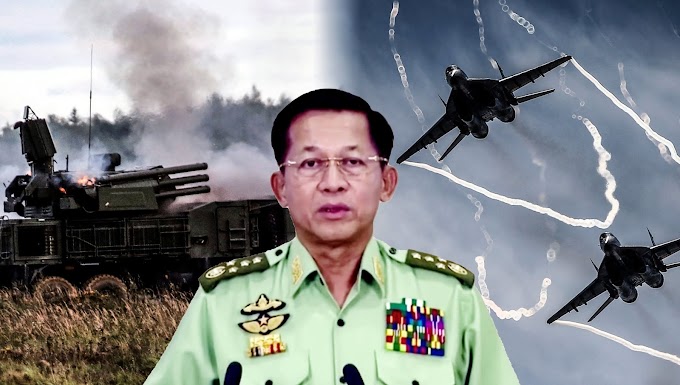Japan: Cancel Financial Grant to Myanmar Police
Myanmar border guard police officers walk along a path in Tin May village in northern Rakhine State, Myanmar, July 14, 2017. © 2017 AP Photo

(Tokyo) – The Japanese government should immediately cancel plans to donate money to purchase vehicles and communications equipment for the Myanmar police force, Human Rights Watch said today. The police force, which operates under the auspices of the military, outside the control of the civilian government, has a well-documented record of serious human rights violations.
On July 2, 2020, Japan’s Foreign Ministry announced a grant of 100 million yen (US$930,000) to the Myanmar police for the purpose of purchasing vehicles and wireless equipment for “protecting dignitaries.” The Foreign Ministry claimed the donations would “strengthen the Myanmar police’s ability to carry out public security measures,” create “social stability,” and contribute to Myanmar's “socio-economic development.”
“It’s inexplicable that the Japanese government would try to curry favor with Myanmar’s abusive security apparatus by providing financial assistance to the police,” said Brad Adams, Asia director. “Instead of supporting Myanmar’s police, Japan should be helping the victims of rights abuses and ethnic cleansing by working with other donor governments to hold the security forces accountable.”
Myanmar’s police acted as a pillar of repression during Myanmar’s 50 years of military rule, arbitrarily arresting dissidents and student activists, engaging in widespread torture, and creating a climate of fear in the country, Human Rights Watch said. The police remain abusive and unconstrained, in large part because the military-drafted constitution maintains military control of the police. The police operate under the authority of the Home Ministry, which is led by a minister who the constitution mandates must be a serving military officer, and operates under the de facto control of the military.
In recent years, the police have engaged in joint operations with the military, carrying out atrocities, including crimes against humanity, against ethnic Rohingya in Rakhine State in 2012, 2016, and 2017. The Myanmar police force, Border Guard Police, and security police battalions accompanied the military in so-called clearance operations that resulted in mass killings, rape, and arson. Police involvement was documented during the deadliest incidents in August and September 2017, including the massacres at Tula Toli and Gu Dar Pyin, where hundreds of Rohingya were killed.
On July 2, 2020, Japan’s Foreign Ministry announced a grant of 100 million yen (US$930,000) to the Myanmar police for the purpose of purchasing vehicles and wireless equipment for “protecting dignitaries.” The Foreign Ministry claimed the donations would “strengthen the Myanmar police’s ability to carry out public security measures,” create “social stability,” and contribute to Myanmar's “socio-economic development.”
“It’s inexplicable that the Japanese government would try to curry favor with Myanmar’s abusive security apparatus by providing financial assistance to the police,” said Brad Adams, Asia director. “Instead of supporting Myanmar’s police, Japan should be helping the victims of rights abuses and ethnic cleansing by working with other donor governments to hold the security forces accountable.”
Myanmar’s police acted as a pillar of repression during Myanmar’s 50 years of military rule, arbitrarily arresting dissidents and student activists, engaging in widespread torture, and creating a climate of fear in the country, Human Rights Watch said. The police remain abusive and unconstrained, in large part because the military-drafted constitution maintains military control of the police. The police operate under the authority of the Home Ministry, which is led by a minister who the constitution mandates must be a serving military officer, and operates under the de facto control of the military.
In recent years, the police have engaged in joint operations with the military, carrying out atrocities, including crimes against humanity, against ethnic Rohingya in Rakhine State in 2012, 2016, and 2017. The Myanmar police force, Border Guard Police, and security police battalions accompanied the military in so-called clearance operations that resulted in mass killings, rape, and arson. Police involvement was documented during the deadliest incidents in August and September 2017, including the massacres at Tula Toli and Gu Dar Pyin, where hundreds of Rohingya were killed.



0 Comments